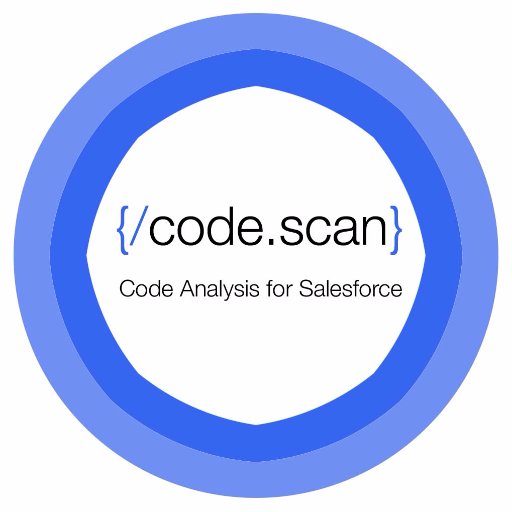Mock sample for your project: Interzoid Convert Currency Rate API
Integrate with "Interzoid Convert Currency Rate API" from interzoid.com in no time with Mockoon's ready to use mock sample

Interzoid Convert Currency Rate API
Version: 1.0.0
Speed up your application development by using "Interzoid Convert Currency Rate API" ready-to-use mock sample. Mocking this API will help you accelerate your development lifecycles and allow you to stop relying on an external API to get the job done. No more API keys to provision, accesses to configure or unplanned downtime, just work.
Enhance your development infrastructure by mocking third party APIs during integrating testing.
Description
This API enables you to convert an amount of one currency into another currency using current foreign exchange rates.
Other APIs by interzoid.com

Interzoid Get Weather By Zip Code API
This API provides current weather information for US Cities, including temperatures, wind speeds, wind direction, relative humidity, and visibility.

Interzoid Get Address Match Similarity Key API
This API provides a similarity key used to match with other similar street address data, including for purposes of deduplication, fuzzy matching, or merging of datasets. A much higher match rate will be achieved by matching on the algorithmically generated similarity key rather than the data itself.

Interzoid Get Global Phone Number Information API
This API provides geographic information for a global telephone number, including city and country information, primary languages spoken, and mobile device identification.

Interzoid Get Area Code From Number API
This API provides area code information for a given telephone number.

Interzoid Get Country Match Similarity Key API
This API provides a similarity key used to match with other similar country name data, including for purposes of deduplication, fuzzy matching, or merging of datasets. A much higher match rate will be achieved by matching on the algorithmically generated similarity key rather than the data itself.

Interzoid Get Full Name Parsed Match Similarity Key API
This API provides a similarity key used to match with other similar full name data when data fields are parsed into first name and last name components, including for purposes of deduplication, fuzzy matching, or merging of datasets. A much higher match rate will be achieved by matching on the similarity key rather than the data itself. This API is for full name data where first and last name are in separate fields. Use the Full Name Similarity Key API for first and last name data that are in the same field.

Interzoid Global Page Load Performance API
This API provides a timed, browser-simulated page load function (or a measured API call) from the specified geography using a server from that geography.

Interzoid Get Full Name Match Similarity Key API
This API provides a similarity key used to match with other similar full name data, including for purposes of deduplication, fuzzy matching, or merging of datasets. A much higher match rate will be achieved by matching on the similarity key rather than the data itself. This API is for full name data where first and last name are in the same field. Use the Full Name Parsed Similarity Key API for first and last name data that are in separate fields.

Interzoid Get Currency Rate API
This API retrieves the latest currency exchange rate, against the US Dollar, for the given three-letter international currency code. These currency rates are compiled from many global sources and are updated several times per day.

Interzoid Get Area Code API
This API provides area code information for a given telephone area code.

Interzoid Get City Match Similarity Key API
This API provides a similarity key used to match with other similar city name data, including for purposes of deduplication, fuzzy matching, or merging of datasets. A much higher match rate will be achieved by matching on the algorithmically generated similarity key rather than the data itself.

Interzoid State Data Standardization API
This API provides the two-letter state abbreviation (or the province abbreviation for Canada) for the purposes of standardizing state name data, improving query results, analytics, and data merging.
Other APIs in the same category
Dataflow Kit Web Scraper
Render Javascript driven pages, while we internally manage Headless Chrome and proxies for you.
Build a custom web scraper with our Visual point-and-click toolkit.
Scrape the most popular Search engines result pages (SERP).
Convert web pages to PDF and capture screenshots.
Authentication
Dataflow Kit API require you to sign up for an API key in order to use the API.
The API key can be found in the DFK Dashboard after free registration.
Pass a secret API Key to all API requests to the server as the api_key query parameter.
Build a custom web scraper with our Visual point-and-click toolkit.
Scrape the most popular Search engines result pages (SERP).
Convert web pages to PDF and capture screenshots.
Authentication
Dataflow Kit API require you to sign up for an API key in order to use the API.
The API key can be found in the DFK Dashboard after free registration.
Pass a secret API Key to all API requests to the server as the api_key query parameter.

Gitlab
gitlab.com
The platform for modern developers
GitLab unifies issues, code review, CI and CD into a single UI
GitLab unifies issues, code review, CI and CD into a single UI
Extpose
Extpose — in‑store performance analytics and optimization tool for Chrome extensions. https://extpose.com

Interzoid Get Global Phone Number Information API
This API provides geographic information for a global telephone number, including city and country information, primary languages spoken, and mobile device identification.

Spell Check Client
microsoft.com
The Spell Check API - V7 lets you check a text string for spelling and grammar errors.

Computer Vision Client
microsoft.com
The Computer Vision API provides state-of-the-art algorithms to process images and return information. For example, it can be used to determine if an image contains mature content, or it can be used to find all the faces in an image. It also has other features like estimating dominant and accent colors, categorizing the content of images, and describing an image with complete English sentences. Additionally, it can also intelligently generate images thumbnails for displaying large images effectively.

GeoDB Cities API
mashape.com
The GeoDB API focuses on getting global city and region data. Easily obtain country, region, and city data for use
in your apps!
Filter cities by name prefix, country, location, time-zone, and even minimum population.
Sort cities by name, country code, elevation, and population - or any combination of these.
Get all country regions. Get all cities in a given region.
Display results in multiple languages. RESTful API adheres to industry best-practices, including
HATEOAS-style links to facilitate paging results.
Backed by cloud-based load-balanced infrastructure for resiliency and performance!
Data is periodically refreshed from GeoNames and WikiData.
Notes:
Since the database is periodically updated, this may very rarely result in certain cities
being marked deleted (e.g., duplicates removed). By default, endpoints returning city data will exclude
cities marked deleted. However, in the unlikely event that this occurs while your app is paging through a set
of affected results - and you care about the paged results suddenly changing underneath - specify
includeDeleted=SINCEYESTERDAY (or SINCELAST_WEEK if you're really paranoid!).
Useful Resources
SDKs
Angular,
Sample App
Java
JavaScript
Swagger Docs
Usage License
in your apps!
Filter cities by name prefix, country, location, time-zone, and even minimum population.
Sort cities by name, country code, elevation, and population - or any combination of these.
Get all country regions. Get all cities in a given region.
Display results in multiple languages. RESTful API adheres to industry best-practices, including
HATEOAS-style links to facilitate paging results.
Backed by cloud-based load-balanced infrastructure for resiliency and performance!
Data is periodically refreshed from GeoNames and WikiData.
Notes:
Since the database is periodically updated, this may very rarely result in certain cities
being marked deleted (e.g., duplicates removed). By default, endpoints returning city data will exclude
cities marked deleted. However, in the unlikely event that this occurs while your app is paging through a set
of affected results - and you care about the paged results suddenly changing underneath - specify
includeDeleted=SINCEYESTERDAY (or SINCELAST_WEEK if you're really paranoid!).
Useful Resources
SDKs
Angular,
Sample App
Java
JavaScript
Swagger Docs
Usage License

